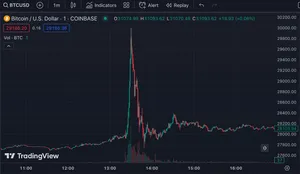Goldfinch is a decentralized lending platform aiming to provide undercollateralized loans, an unusual strategy in the crypto world where loans are typically overcollateralized due to the difficulty in evaluating the trustworthiness of borrowers and in preventing them from just taking off with the loan funds.They may now be discovering this was a bad idea, as an impending default on a $20 million loan from February 2022 threatens the platform with a possible $7 million loss.
The loan went to a fintech credit fund called Stratos, who in turn used the money for a risky real estate technology investment (now written down to zero), crypto investments of their own (not disclosed to Goldfinch, and sold at a "near full loss"), and other investments. Stratos is, awkwardly, an investor in Goldfinch, and Stratos' founder was an advisor.
This is not the first loan gone bad for Goldfinch, who suffered a loss when an African motorcycle taxi financing company used a $5 million loan to try to plug the hole in the finances of a sister company.
A commenter on the disclosure about the distressed loan wrote, "This is the second occurrence of a lack of transparency from a borrower or a lack of auditing capability from Goldfinch. We can all appreciate that Warbler Labs will backstop the loss, but it is increasingly worrying to discover a complete lack of control from the loan underwriter, especially in the context of Stratos being an equity investor in Goldfinch."









































